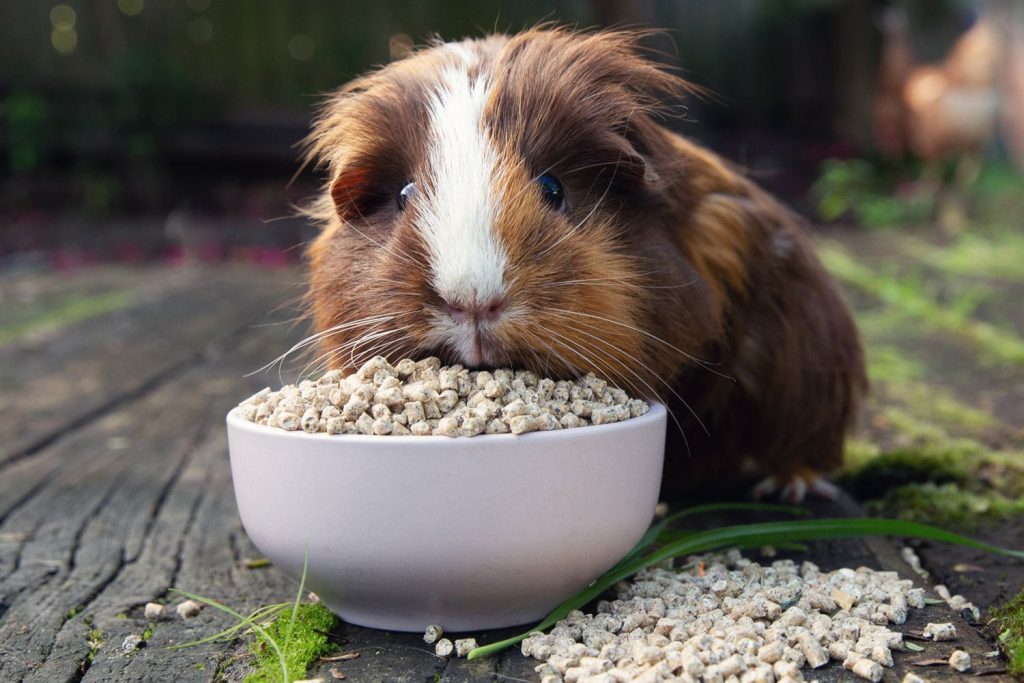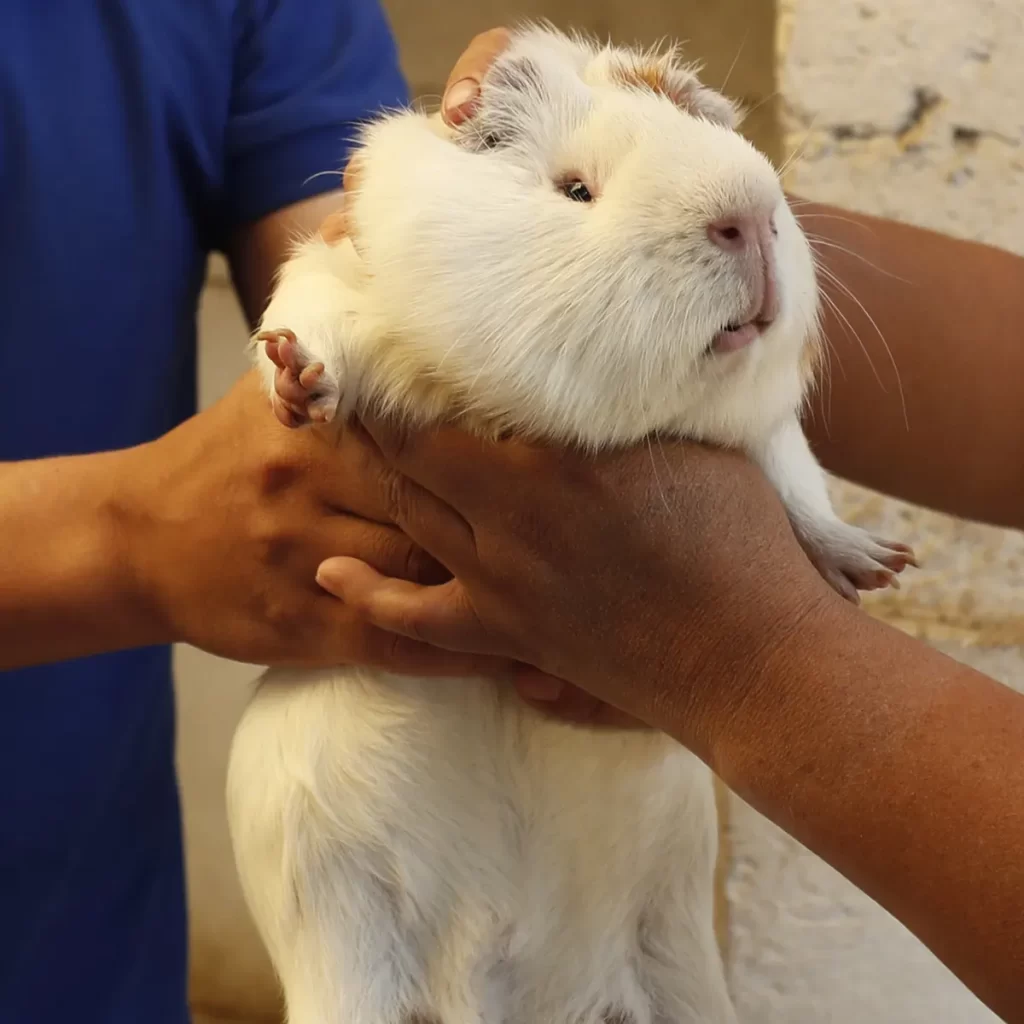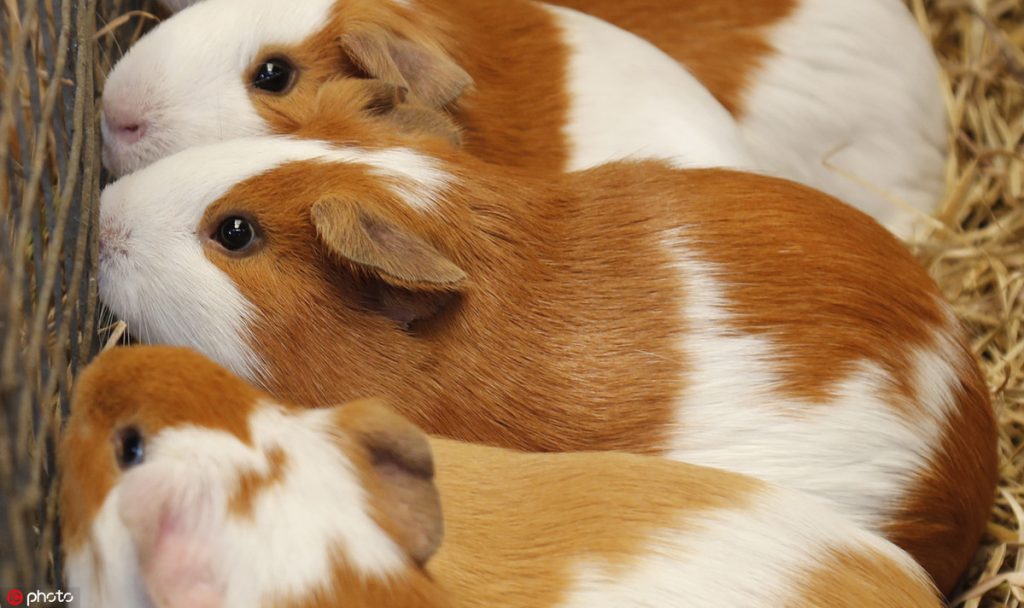Feeding and nutrition are essential for the health and well-being of guinea pigs. A balanced diet is necessary to maintain good digestion, dental health, and overall health. In this article, we will provide you with a detailed description of the feeding and nutrition requirements for guinea pigs.

Hay
Hay should be the primary component of your guinea pig’s diet. Timothy hay is an excellent choice because it is high in fiber and low in protein. Guinea pigs require a constant supply of hay to help keep their digestive system healthy. Hay also helps to wear down their teeth, which can grow quickly and cause problems if not properly worn down.
Pellets
Pellets are a concentrated source of nutrition and should be given in moderation. A good quality guinea pig pellet should contain at least 18% protein and 16% fiber. Avoid pellets that contain seeds, nuts, or dried fruits, as they are high in fat and sugar and can lead to obesity.
Vegetables
Vegetables should also be a part of your guinea pig’s diet. Good vegetable choices include leafy greens such as spinach, romaine lettuce, and kale. Other good options include bell peppers, carrots, and cucumbers. Guinea pigs require vitamin C in their diet, so it is important to provide them with fresh vegetables that are high in vitamin C, such as bell peppers.

Fruits
Fruits can be given as a treat, but they should be given in moderation. Fruits contain a lot of sugar, which can lead to obesity and dental problems. Good fruit choices for guinea pigs include apples, bananas, and strawberries.
Water
Fresh, clean water should be available to your guinea pig at all times. Use a water bottle to provide water, as it is easier to keep clean and prevents drowning. The water should be changed daily to ensure it stays fresh.
Feeding Schedule
Guinea pigs should be fed twice a day, once in the morning and once in the evening. Provide your guinea pig with a measured amount of pellets and fresh hay each day. Vegetables and fruits can be given as treats and should be given in moderation.
Nutritional Supplements
Guinea pigs require vitamin C in their diet, and it is important to ensure they are getting enough. Many guinea pig pellets are fortified with vitamin C, but it is still a good idea to provide your guinea pig with fresh vegetables that are high in vitamin C. If your guinea pig is not getting enough vitamin C from their diet, a vitamin C supplement can be given.
Dental Health
Dental health is essential for guinea pigs, and their diet plays a significant role. Hay is essential for wearing down their teeth, and their diet should be high in fiber to promote healthy digestion. Avoid feeding your guinea pig anything that is high in sugar or starch, as it can lead to dental problems.

In conclusion, feeding and nutrition are essential for the health and well-being of guinea pigs. Provide your guinea pig with a balanced diet that includes hay, pellets, vegetables, fruits, and fresh water. Avoid feeding your guinea pig anything that is high in fat, sugar, or starch, and provide them with nutritional supplements as needed. Dental health is also important, so ensure their diet is high in fiber and promotes healthy digestion.


